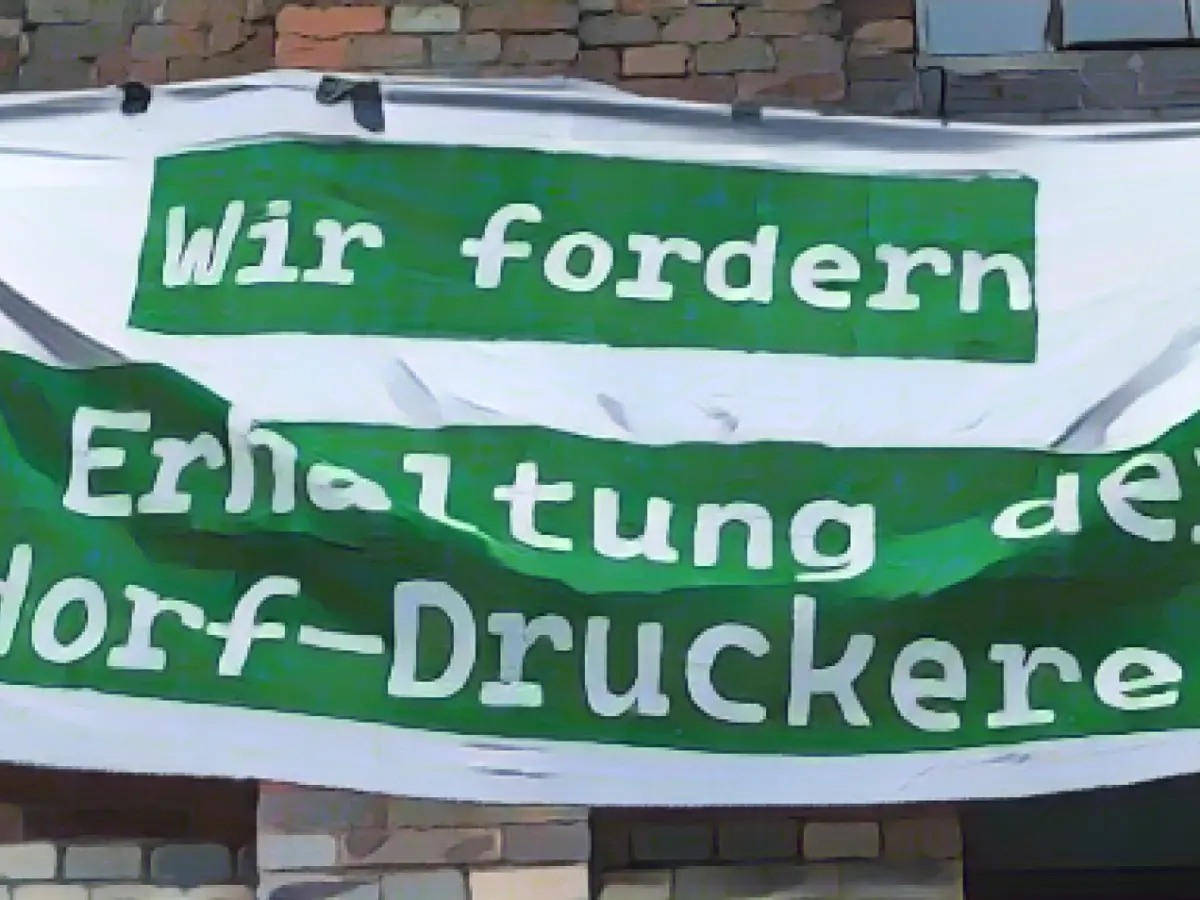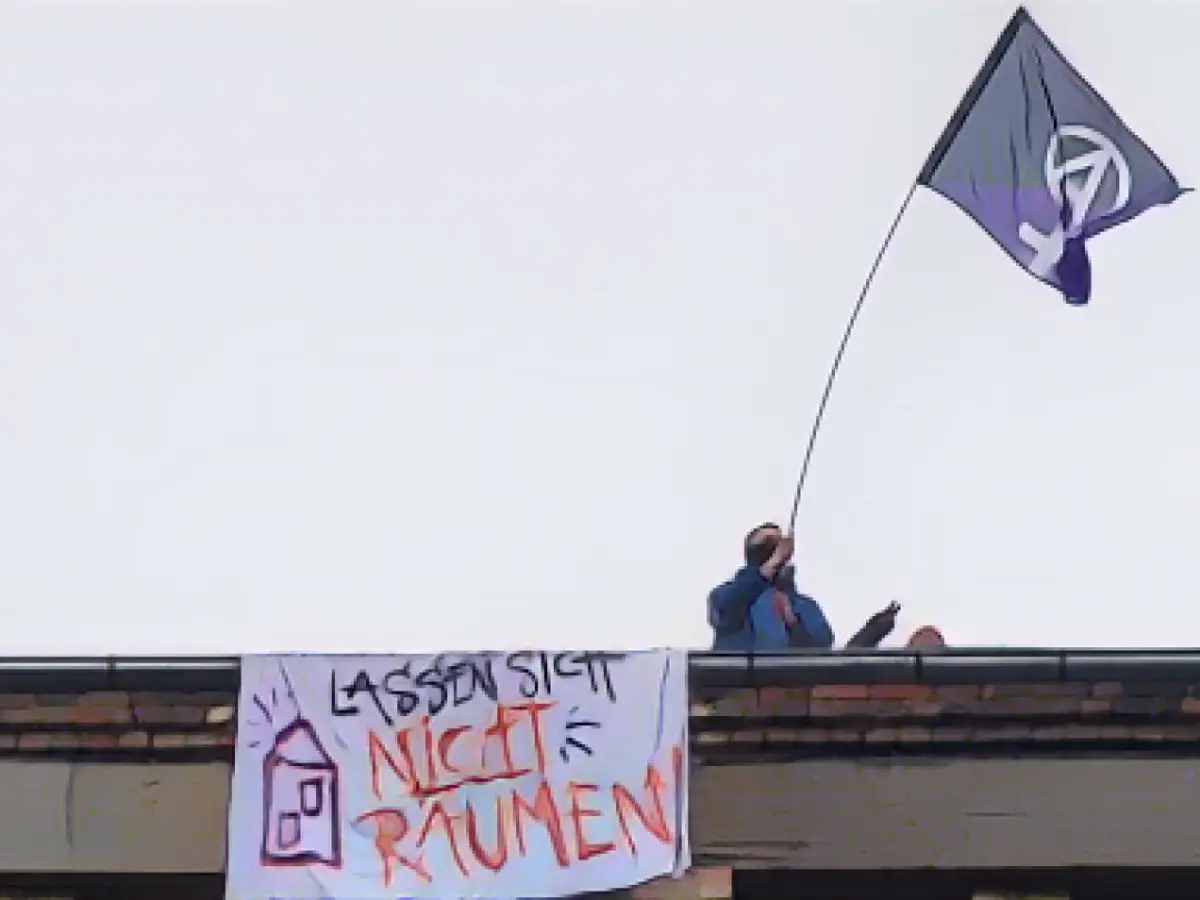Title: Clearing the Occupied Dondorf Print Shop in Frankfurt's Bockenheim District
In the bustling heart of Frankfurt, the city's police force have initiated a peaceful evacuation process for the squatted Dondorf printing works, a historical site in the Bockenheim district. Roughly 60 to 70 individuals, which include around 15 to 20 on the rooftop, were requested to vacate the premises or descend from their vantage points. The operation commenced without incident, with a spokesperson assuring that discussions concerning the property's preservation and the establishment of new facilities remain on the table for both parties, even amidst these occurrences.
The collective, who have taken up residence in the building since last weekend - following the summer's initial occupation - have been urged by Goethe University to abandon the site voluntarily. In such a scenario, the university had offered to withdraw their criminal charges and initiate negotiations for safeguarding the property and the creation of alternative accommodations. However, the activists dwelling in the building expressed their dissatisfaction with the "ambiguous promises" made by the university.
As the property's landlord, Goethe University (which belongs to the state of Hesse) stands as a pivotal figure in these ongoing developments. The building, a hub of cultural significance for urban society, has served as the backdrop for numerous demonstrations and sabotage attempts in the city, resulting in physical injuries to both police officers and protestors.
It's worth mentioning that the Schirn Kunsthalle Frankfurt - Frankfurt's prominent art museum - will be relocating to the former Dondorf printing factory for a period of two years, starting in summer 2025. This move is part of the Schirn's energy-efficient renovation plan of its main venue at Römer Square. During this tenure, the Schirn will adapt and utilize this historical building complex to host exhibitions, events, and educational programs.
While these changes are underway, the activists' protests and their ultimate eviction from the building continue to shed light on the complex relationship between urban development, cultural preservation, and collective rights in Frankfurt.






